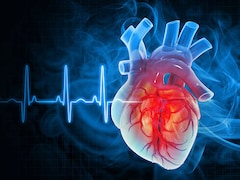Understanding the type and cause of your headache is essential for finding effective relief.

What Does Your Headache Mean? Here Are The Most Common Factors
Headaches are one of the most common health complaints, affecting people of all ages. While often brushed off with over-the-counter medication, headaches can signal deeper health issues or lifestyle imbalances. According to the World Health Organisation (WHO), nearly half the adult population experiences a headache at least once a year. But not all headaches are the same, some stem from stress, others from dehydration, poor posture, or underlying medical conditions. Understanding the type and cause of your headache is essential for finding effective relief. Let's explore the most common types of headaches and what your symptoms may be trying to tell you.
Identifying your headache can help manage it
Different types of headaches require different treatment strategies. Pinpointing the cause helps prevent recurrence and improves your quality of life. Here are the most common types of headaches and their causes.
1. Tension headache
This is the most common type, often described as a dull, aching pain around the forehead or back of the neck. Tension headaches usually respond well to rest, hydration, and over-the-counter pain relief. It's usually caused due to the following factors.
a. Emotional stress or anxiety
b. Poor posture
c. Lack of sleep
d. Eye strain from screens
2. Migraine
Migraines are intense, throbbing headaches that may be accompanied by nausea, sensitivity to light and sound, and visual disturbances (auras). According to the National Institute of Neurological Disorders and Stroke (NINDS), migraines affect around 12% of the population, and managing triggers is key to prevention. Migraine triggers include the following.
a. Hormonal changes (especially in women)
b. Certain foods (chocolate, cheese, caffeine)
c. Weather changes
d. Irregular sleep
3. Cluster headache
These are extremely painful headaches that occur in cyclical patterns or clusters, often waking sufferers at night. Cluster headaches are rarer but more intense and may require prescription treatment. They are usually one-sided and centred around the eye. Triggers may include the following.
a. Alcohol or smoking
b. High altitudes
c. Excessive heat
d. Certain medications
4. Sinus headache
Sinus infections can cause pain in the forehead, cheeks, and eyes due to inflammation. These headaches improve with decongestants, saline rinses, or antibiotics if an infection is present. These headaches typically come with symptoms such as the following.
a. Nasal congestion
b. Facial pressure
c. Post-nasal drip
d. Fever (in case of infection)
5. Caffeine-related headache
Regular caffeine drinkers may experience headaches from sudden withdrawal or excessive intake. Gradually reducing caffeine and staying hydrated helps manage this type of headache. Common signs of caffeine-related headaches include the following.
a. Pulsating pain
b. Irritability
c. Fatigue
6. Dehydration headache
Lack of water reduces brain fluid levels, causing the brain to temporarily shrink and pull away from the skull, triggering pain. Drinking adequate fluids and avoiding alcohol or excess salt can help prevent this. Symptoms of dehydration headaches include the following.
a. Dull ache
b. Throbbing sensation
c. Dry mouth and dizziness
7. Exertional headache
These occur during or after intense physical activity, including exercise or even coughing. They are often short-lived but can be alarming. Cooling down and proper hydration are key preventive measures. Causes of exertional headache include the following.
a. Increased blood flow to the brain
b. Strenuous activity in hot weather
c. Poor breathing technique during workouts
While headaches are common, understanding their cause can guide effective treatment and long-term prevention. From stress and sleep to hydration and hormones, several factors can trigger head pain. As advised by the World Health Organisation, recurring or severe headaches should never be ignored. Consult a healthcare provider to explore underlying causes and receive appropriate treatment tailored to your needs.
Disclaimer: This content including advice provides generic information only. It is in no way a substitute for a qualified medical opinion. Always consult a specialist or your own doctor for more information. NDTV does not claim responsibility for this information.
DoctorNDTV is the one stop site for all your health needs providing the most credible health information, health news and tips with expert advice on healthy living, diet plans, informative videos etc. You can get the most relevant and accurate info you need about health problems like diabetes, cancer, pregnancy, HIV and AIDS, weight loss and many other lifestyle diseases. We have a panel of over 350 experts who help us develop content by giving their valuable inputs and bringing to us the latest in the world of healthcare.














